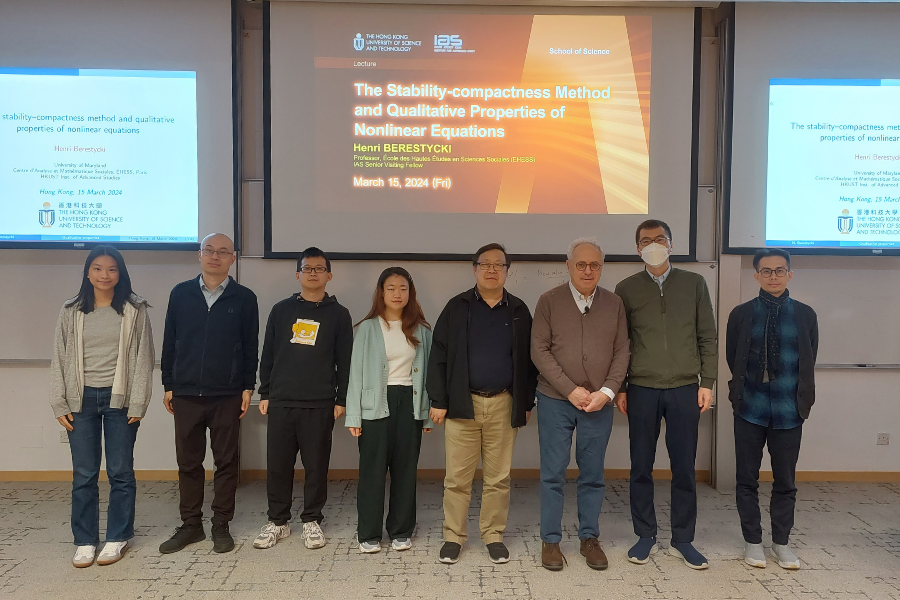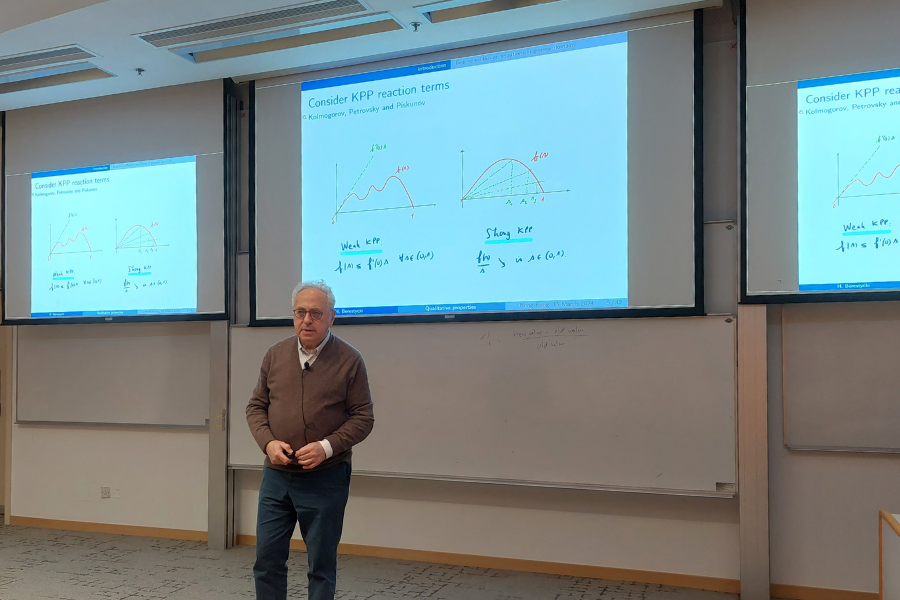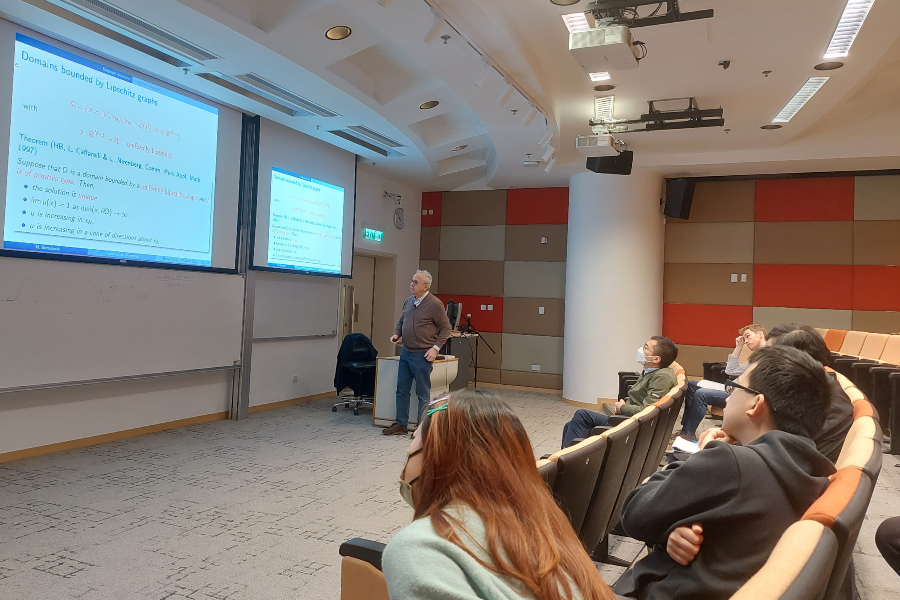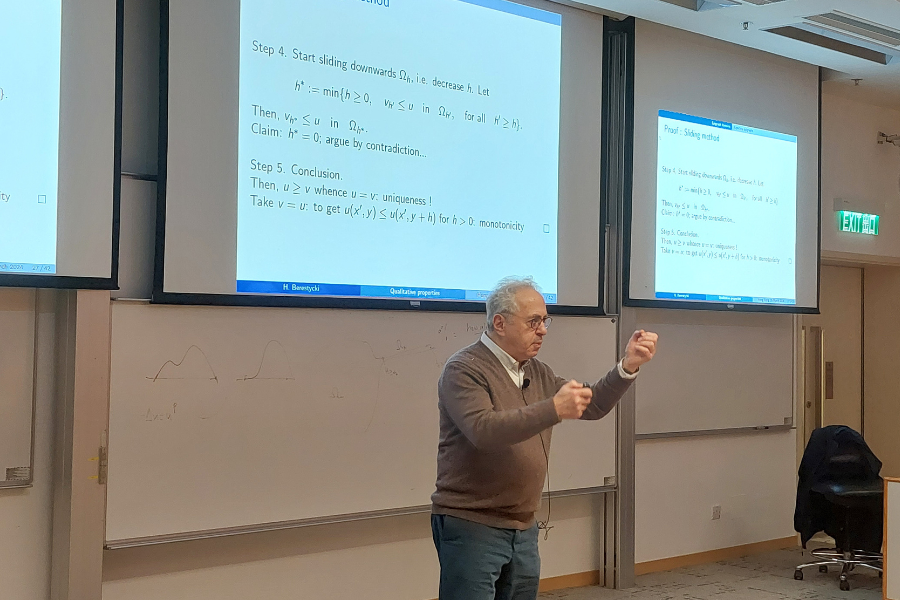The Stability-compactness Method and Qualitative Properties of Nonlinear Equations
Abstract
Nonlinear elliptic equations describe the stationary states of numerous systems in physics, biology and medicine. Qualitative properties such as monotonicity, symmetry, stability or uniqueness are essential features of their study. In this lecture, the speaker will present a new general method to approach this type of question. It rests on decomposing the domain into one region with a certain compactness feature and another supporting a form of spectral stability. This approach has proved to be unexpectedly versatile and in fact encompasses past works on the subject such as the general moving plane method originating in the study of minimal surfaces by Alexandrov. The speaker will apply it to the uniqueness of positive solutions of nonlinear elliptic PDEs. The main motivation is to study these equations in general unbounded domains, with positive nonlinearities, and Dirichlet boundary conditions, a context that exhibits remarkably rich behavior. This represents a series of joint works with Cole GRAHAM.
About the Speaker
Prof. Henri Berestycki received his PhD from Université Pierre et Marie Curie in 1975, and was a CNRS researcher at the University of Paris VI before joining the University of Paris XIII as a Professor in 1983. He then returned to Université Pierre et Marie Curie as a Professor of Mathematics in 1988. In 2001, he moved to École des Hautes Études en Sciences Sociales (EHESS, which became a constituent college of the federal PSL Research University later), where he is currently a Professor. He was appointed the Dean of Research in PSL Research University in 2015-2017.
Prof. Berestycki’s current research interests include the mathematical modelling of financial markets, mathematical models in biology and especially in ecology, and modelling in social sciences.
Prof. Berestycki received numerous awards including the Sophie Germain Prize of the French Academy of Sciences (2004); the Gay-Lussac-Humboldt-Prize of the Humboldt Foundation (2004); the French Legion of Honor (2010). He was selected as a Fellow of the American Mathematical Society and an International Honorary Member of the American Academy of Arts and Sciences in 2013.
For Attendees' Attention
-
Seating is on a first come, first served basis.






